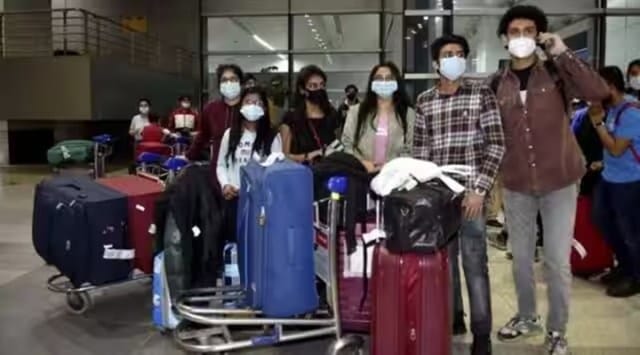Canada is poised to admit an impressive 750,000 students this year, with over half of them originating from India. This flourishing international education program has burgeoned into a nearly C$ 30 billion-a-year industry. However, resistance to the program is emerging.

In a significant shift reflecting stricter regulations for foreign students aspiring to study in Canada, the country’s new immigration minister announced last week that the federal government was open to reassessing its international student enrollment policies.
This decision has been prompted by a series of reports concerning fraudulent admissions practices, wherein agents based in India deceived students by issuing counterfeit acceptance letters from Canadian educational institutions. The fallout from this scandal resulted in a group of affected students launching a strike in June, ultimately compelling the government to halt their deportations.
Marc Miller, the Minister of Immigration, Refugees and Citizenship, addressed the issue, stating, “There is fraud across the system that we are going to have to clamp down on.”
Canada is poised to admit an impressive 750,000 students this year, with over half of them originating from India. This flourishing international education program has burgeoned into a nearly C$ 30 billion-a-year industry.
However, resistance to the program is emerging. Escalating unaffordability and a deepening housing crisis are increasingly attributed to the large-scale intake of newcomers. As Canada seeks to control inflation by increasing interest rates, the challenge of unemployment is further compounded by the influx of immigration, including not only international students but also hundreds of thousands of new permanent residents annually, as well as holders of various temporary visas.
Experts are cautioning that if Canada does not rein in these rising numbers, the broad support in favor of immigration within the country might begin to falter. A recent report by Toronto Dominion (TD), a leading financial services institution, warned that “continuing with a high-growth immigration strategy could widen the housing shortfall by about a half-million units within just two years.”
A recent opinion piece published Friday by The Globe and Mail bore the headline: “Want to ease Canada’s housing crisis? Let’s start by being responsible about international student visas.”
The columnist, Jen Gerson, underlined the urgency of substantially reducing the number of student visas, particularly for private colleges offering subpar education quality.
Meanwhile, even as the government is agreeing to review the international student program, it isn’t backing down from its target of admitting half a million permanent immigrants each year.
“Looking at the (immigration) levels that we have recently approved as a cabinet (and) as a government, we can’t afford to reduce those numbers,” Miller emphasized in an interview with the Canadian Press.
Centennial College Steps Up to Assist Displaced International Students
Centennial College, a prominent public college situated in Toronto, has extended a helping hand to numerous students whose admissions were abruptly revoked by another Ontario institution.
This announcement follows reports that Northern College, located in Timmins, revoked admission offers for 504 international students. Many of these students had already paid nearly C$16,000 in fees and made travel and accommodation arrangements for the upcoming fall semester. Northern College said the decision was made after more students ended up applying to study at its partner private college, Pures College, in Scarborough, Toronto, than could be reasonably accommodated. It said the situation arose because the government issued more study visas than the college had anticipated.
Craig Stephenson, President and CEO of Centennial College, shared his perspective with the Canadian Broadcasting Corporation last week: “Centennial is prepared to accommodate several students who might otherwise have to cancel or postpone their plans to start college in Ontario this fall. We are closely collaborating with BorderPass, Northern College, and our government partners to facilitate a solution for those who choose to pursue acceptance in an equivalent program and meet the criteria.”
